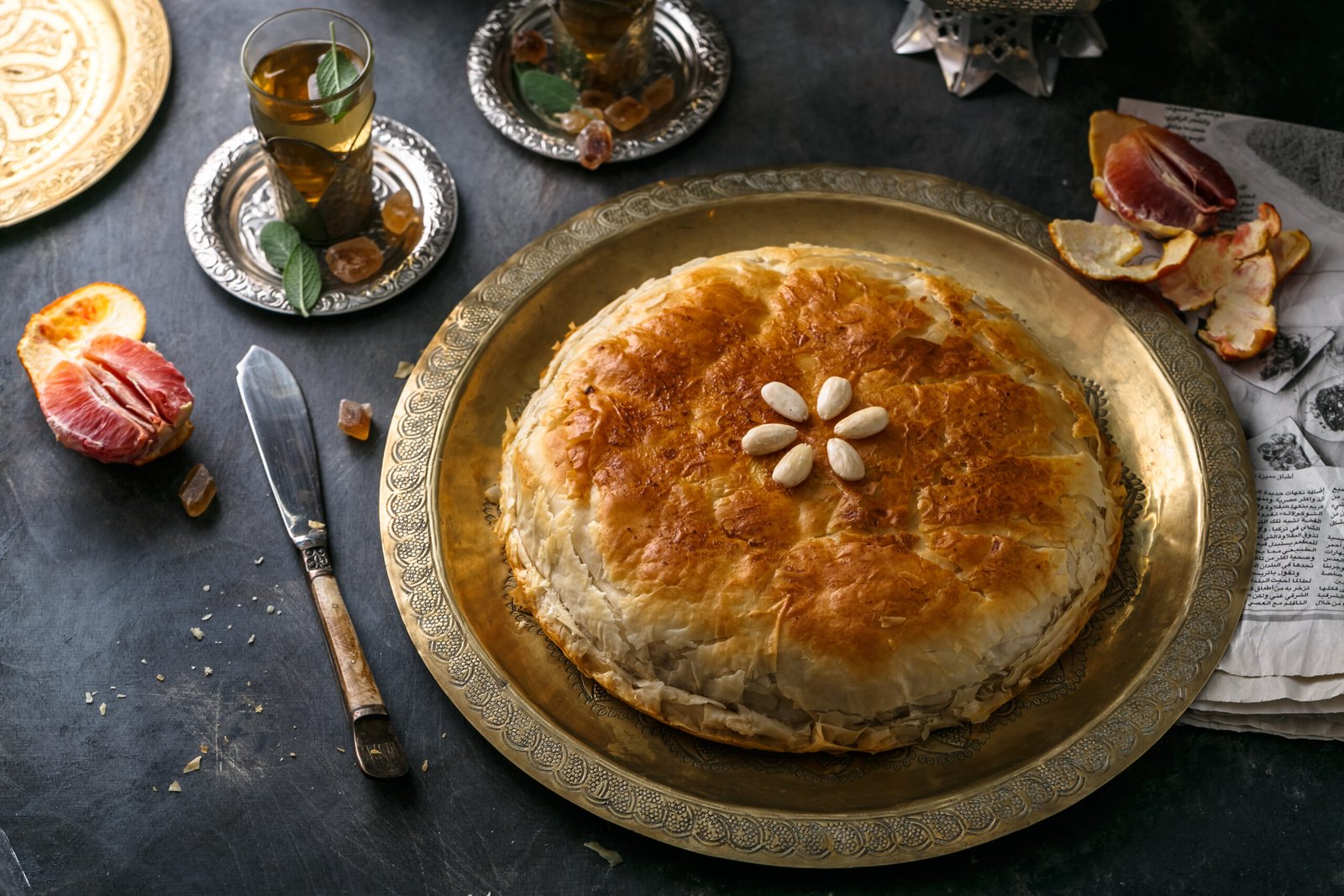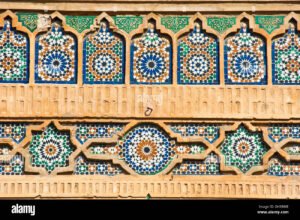Feast for the Senses
Morocco is a land of contrasts, where ancient traditions blend seamlessly with modern influences. Beyond its stunning landscapes and rich cultural heritage, Morocco is best explored through its cuisine. From the bustling souks of Marrakech to the quiet coastal towns of Essaouira, good Moroccan food is a defining part of the travel experience. Every dish tells a story, shaped by centuries of Berber, Arab, and Mediterranean influences. The country’s food culture revolves around bold spices, slow-cooked stews, and fresh ingredients that create a unique and unforgettable dining experience. Whether you are indulging in a fragrant tagine, savoring hand-rolled couscous, or sampling street food from a lively market, Moroccan cuisine offers a journey of flavors that lingers long after the trip ends. For visitors seeking authenticity, Morocco provides endless opportunities to discover its culinary treasures. From high-end restaurants to hidden local gems, this guide explores the best Moroccan dishes and where to experience them while traveling through the country. We’re here to help! Message us on WhatsApp, and a team member will assist you personally.1. Tagine: The Quintessential Moroccan Dish
Tagine is more than just a meal—it is a symbol of Moroccan hospitality and tradition. This slow-cooked stew takes its name from the conical clay pot in which it is prepared. The unique shape of the tagine allows steam to circulate, locking in moisture and intensifying flavors.What Makes It Special
- Cooked with a blend of spices such as cumin, cinnamon, ginger, and saffron.
- Ingredients range from tender lamb with prunes to chicken with preserved lemons and olives.
- Vegetarian versions include a rich mix of seasonal vegetables, chickpeas, and aromatic herbs.
Where to Try It
- Nomad Restaurant, Marrakech – A contemporary take on traditional tagines, served with a rooftop view.
- Café Clock, Fes – A cozy, artistic space known for its flavorful lamb and vegetable tagines.
Pro Tip
To experience an authentic tagine, visit a Moroccan home where it is traditionally shared straight from the pot with warm, crusty bread.2. Couscous: A Friday Tradition of Good Moroccan Food
Couscous is one of Morocco’s most beloved dishes, traditionally prepared on Fridays, the Islamic holy day. This dish consists of hand-rolled semolina grains steamed multiple times for a light, fluffy texture. It is typically served with slow-cooked meat, vegetables, and a flavorful broth.What Makes It Special
- Often topped with tfaya, a sweet and savory caramelized onion and raisin mixture.
- Served as a communal dish, emphasizing Moroccan hospitality and family gatherings.
- Some regions prepare variations, such as couscous with fish in coastal areas.
Where to Try It
- Dar Moha, Marrakech – An upscale setting serving an elevated version of traditional couscous.
- La Maison Bleue, Fes – A historic riad offering an authentic Friday couscous experience.
Pro Tip
Couscous is best enjoyed fresh on Fridays when restaurants and homes prepare it in large quantities.3. Pastilla: A Sweet and Savory Masterpiece of Good Moroccan Food
Pastilla is a unique Moroccan delicacy that blends sweet and savory flavors in a crisp, golden pastry. Traditionally made with pigeon, modern variations often use chicken or seafood. The dish consists of layers of thin, flaky warqa dough (similar to phyllo), filled with spiced meat, toasted almonds, cinnamon, and saffron. A light dusting of powdered sugar on top enhances its contrasting flavors.What Makes It Special
- The crispy exterior contrasts with the rich, flavorful filling.
- Originally a dish of royalty, now widely available in restaurants across Morocco.
- A perfect balance of sweet, nutty, and savory elements.
Where to Try It
- Restaurant Al Fassia, Marrakech – Famous for its expertly prepared pastilla.
- Le Foundouk, Marrakech – A stylish setting offering this dish as part of a refined Moroccan menu.
Pro Tip
Pair pastilla with a glass of freshly brewed Moroccan mint tea to balance its sweetness.4. Moroccan Street Food: A Hidden Gem for Lovers of Good Moroccan Food
Street food is an essential part of Morocco’s food scene, offering travelers the chance to experience authentic flavors at affordable prices. Markets and roadside stalls serve a variety of quick bites, each with distinct regional influences.Must-Try Moroccan Street Foods
- Harira – A hearty lentil and tomato soup, often served with dates.
- Sfenj – Moroccan doughnuts, deep-fried until crispy and enjoyed with honey or sugar.
- Maakouda – Spiced potato fritters, often served in a sandwich.
- Kefta Brochettes – Spiced minced meat skewers grilled over charcoal.
Where to Try It
- Jemaa el-Fnaa, Marrakech – A legendary night market offering a wide variety of street food.
- Bab Boujloud, Fes – A vibrant area with some of the best local food stalls.
Pro Tip
To find the best street food, follow the crowds—locals know where to find the freshest and most flavorful dishes.5. Moroccan Desserts and Mint Tea: The Perfect Ending to Good Moroccan Food
No Moroccan meal is complete without something sweet. Traditional desserts often feature honey, almonds, and fragrant spices, creating rich flavors that pair perfectly with mint tea.Must-Try Moroccan Desserts
- Chebakia – Deep-fried sesame cookies coated in honey, popular during Ramadan.
- Kaab el Ghazal – Crescent-shaped pastries filled with almond paste and orange blossom water.
- Sellou – A nutritious, nut-based treat made with roasted flour, honey, and sesame seeds.
The Moroccan Tea Ritual
Mint tea, often called "Berber whiskey," is an essential part of Moroccan hospitality. Made with Chinese green tea, fresh mint, and sugar, it is poured from a height to create a frothy top.Where to Experience It
- Dar Cherifa, Marrakech – A peaceful riad offering a traditional tea ceremony.
- Riad Yacout, Meknes – A charming tea lounge in an authentic Moroccan setting.
Pro Tip
The longer the tea is steeped, the stronger the flavor. Always accept at least one glass when offered—it is a sign of respect and hospitality.Planning Tips for Food-Loving Travelers
- Best Time to Visit: Moroccan cuisine is enjoyable year-round, but visiting during Ramadan offers unique dishes like harira and chebakia.
- Dietary Considerations: Many dishes can be adapted for vegetarians, with vegetable tagines and lentil-based meals widely available.
- Food Etiquette: Moroccans eat with their hands (right hand only) and use bread as a utensil. It is customary to share meals from a communal dish.
- Cooking Classes: For travelers who want to bring Moroccan flavors home, cooking classes in Marrakech, Fes, or Chefchaouen offer hands-on experience.









